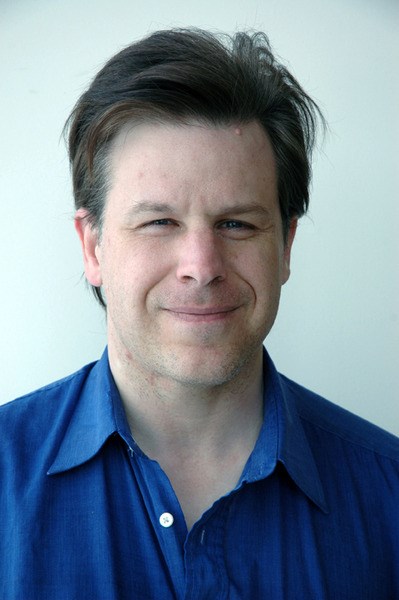Twenty years ago around this time, a seminal moment in American history took place.
That moment, of course, was the O.J. Simpson murder case.
Yes, I know, you are shaking your head at that statement. But there is no doubt that case, with Simpson accused of stabbing to death his ex-wife Nicole Brown Simpson and her friend Ronald Goldman at Brentwood, held audiences spellbound for the whole time it went on, right up until that day on October 3, 1995 when O.J. was acquitted.
The early days of the investigation saw the ultimate "where were you" moment of all time: that evening on June 17, 1994 when O.J. Simpson was inside the white Ford Bronco trailed by police vehicles in a chase on the freeways of Los Angeles.
I remember where I was. I was at home, hoping to tune into an NBA finals game between Houston and New York, when all this mayhem erupted.
It was impossible to take my eyes off this situation. People in Los Angeles stopped on the freeway overpasses to wave and cheer as the Ford Bronco made its way. Adding to the drama was the real possibility of O.J. killing himself, live.
What those of high school age probably don't realize is how shocking this was to people at the time. An entire generation has grown up thinking of O.J. as a shady character, a thug. But that was not his image in 1994.
O.J. was a major celebrity. He had made the Naked Gun movies with Leslie Nielsen, appeared in commercials running through airports for Hertz and did commentary on Monday Night Football.
All this was on top of his storied football career, setting a single-season rushing record with the NFL Buffalo Bills. The guy was a hero, so these events came as a rude shock.
The "Trial of the Century" that followed proved a long and entertaining spectacle.
From the get go, almost every moment of the case was shown on TV, including the arraignment - with O.J.'s famous "absolutely 100 per cent not guilty" plea - and the preliminary hearings and the trial itself.
Since we didn't have access to Court TV, we relied on CNN. Every day, Jim Moret would host live coverage of the activities in Judge Lance Ito's courtroom in Los Angeles.
Whenever the trial was in recess, Moret would host legal commentators Greta Van Susteren and Roger Cossack, dissecting what was going on. This trial made them famous, and Greta now hosts a show on Fox News Channel every night.
It wasn't just CNN covering the trial. There was so much interest the media centre outside the courthouse was dubbed "Camp O.J." because so many reporters were there full time. And there were endless books written about the trial.
Many criticized the coverage as tabloid sensationalism. This included media people who seemed to think reporting the case was beneath them. I think the real reason these "media critics" were so ticked off was the fact people were actually into this trial. People were tuning in.
In court, defence lawyer Johnnie Cochran and the "Dream Team" faced off against Marcia Clark and the prosecution. O.J.'s lawyers included Robert Shapiro, F. Lee Bailey, Barry Scheck and others. Along for the ride in court was O.J.'s friend, lawyer Robert Kardashian. That's right, Kardashian, now known for his even more (in)famous daughters Kim, Khloe and Kourtney.
The reality was that if you stepped away from the "tabloid" elements and the amusing sideshows like hilarious "houseguest" Kato Kaelin who was on the stand, the fact was there was a larger race relations issue wrapped up in what was going on.
The case highlighted racial tensions going on in Los Angeles. The city had just come off the infamous beating of Rodney King by police that was caught on video, followed by acquittals of all the officers that sparked outrage in the form of the Los Angeles Riots.
Now, there was another black man, O.J. Simpson, in trouble with the LAPD. You could cut the racial tension with a knife. Distrust of the LAPD among the African-American community in Los Angeles could not have been higher.
The defence team made a big stink about the LAPD rushing to judgement. They accused investigator Mark Fuhrman, notorious for making racist statements about African-Americans that were caught on tape, of planting evidence. Whether Fuhrman did or not, nevertheless he was made to look really bad on the stand.
I am convinced prosecutors botched the case. As far as I was concerned, all the DNA evidence pointed to O.J., but all kinds of things happened at trial with the defence making the LAPD and lab people look incompetent.
The climax came when prosecutor Christopher Darden had O.J. try on the glove found at the scene.
Note to prosecutors: before you have the accused try on any evidence, make sure it fits first! Otherwise you'll have defence lawyers telling the jury "if it doesn't fit, you must acquit" in their closing.
People say the O.J. trial set the stage for coverage of other cases we've seen in recent years. Yet the truth is it had a chilling effect on televising trials for a long time.
When the Goldman family later sued Simpson for civil responsibility in the death of Ron Goldman, the trial judge kicked the cameras out. When Michael Jackson went to trial on sex charges years later, cameras were kicked out, too. The media circus is not yet forgotten.
Nowadays, O.J. is in prison in Nevada for an armed robbery conviction involving sports memorabilia. Recently, he was trying to get that conviction thrown out on appeal.
As if that's what we need: another O.J. trial.



